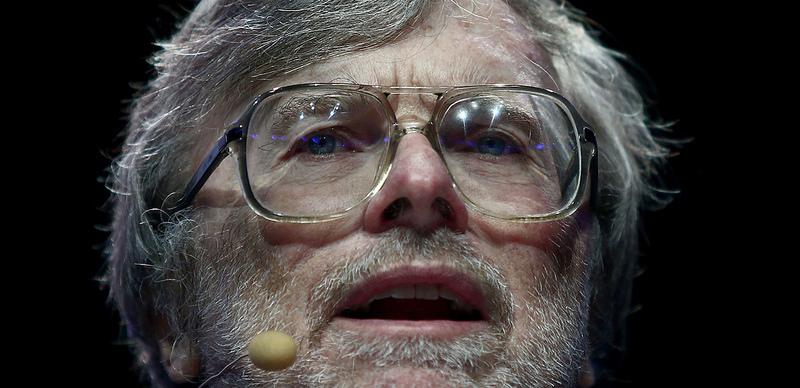The Research Conundrum: Write lots of easy papers, or tackle the tough ones

Researchers are always faced with the choice – write lots of easy papers, or write quite difficult ones. These were among the opening comments of Stanislav Smirnof at a plenary session of ICM 2018 this morning at Riocentro.
The Russian probability theorist described his American colleague Gregory Lawler, who delivered a plenary session this morning, as “ingenious and persistent” in his approach to his research area, “Conformally Invariant Measures on Paths and Loops.”
Read more: ‘Master of Dreams’ inspires next generation of mathematicians
“Every one of you is a potential candidate for the Fields Medal”
Indigenous Guarani Stand at ICM 2018: ‘We Count to Five’
Smirnof, who won a Fields Medal in 2010, said that Lawler’s research had not only shown him the immense value of collaboration in probability research, but had also helped him directly in his own work. “I was working a difficult problem with a friend and I was stuck, and didn’t know what to do. Then his paper appeared on an archive, and it just instantly became clear to me. It’s really not often that happens, so it stays in your memory,” he said.
Based at the University of Chicago since 2000, Lawler is probably best known for his work on the Schramm-Loewner evolution, which he described this morning as the “building block of conformal variance”, as he described recent advances and his continuing research on SAW (self-avoiding walks), LERW (loop-erased random walks), Brownian loop measures, SLE (Schraumm-Loewner evolution) & SLE-type loops, Gaussian free field, and Liouville quantum gravity.
Lawler described Self Avoiding Walks as a open problem. “The reason we don’t know how to prove something is that we don’t know how to prove it.”
Quoting his supervisor, the late Edward Nelson, Lawler said, “you don’t really know what’s happening on the smallest level, because you only ever see part of the world.” The goal, he added, is to “understand behaviour as the system gets bigger.”
Gregory Lawler was born in the US in 1955, and joined faculty at Duke University in 1979, where he remained for 22 years, before moving to Cornell University for the following five years. He has been based at University of Chicago since 2000. He was awarded the SIAM George Pólya Prize in 2006, with colleagues Oded Schramm and Wendelin Wener, and has been a fellow of the American Mathematical Society since 2012.


